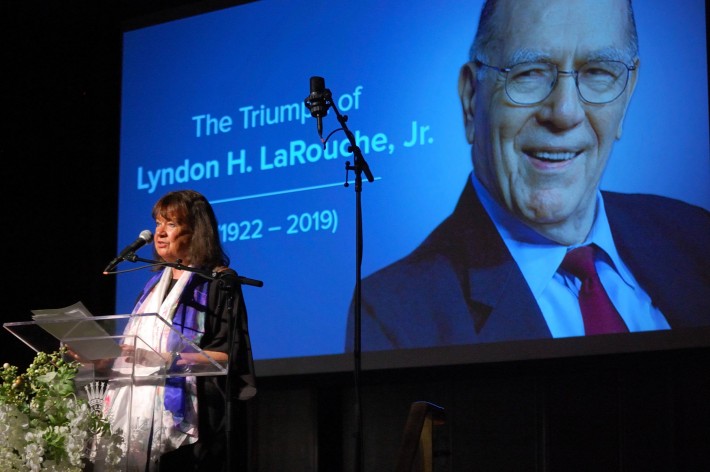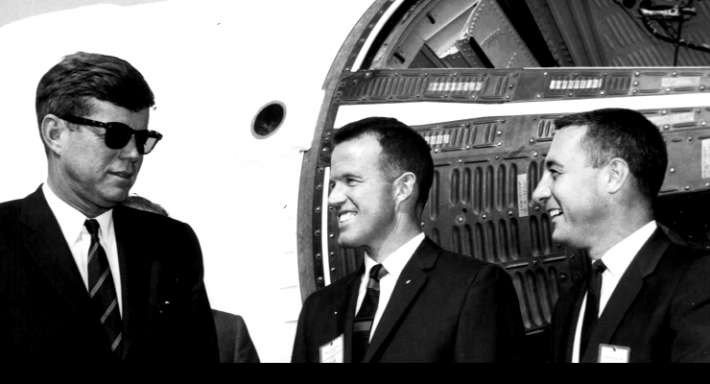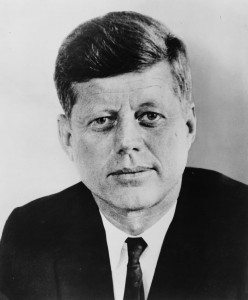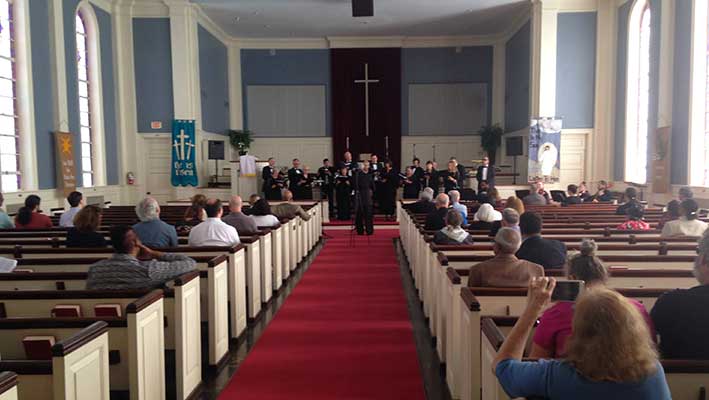CGTN anchor Yang Rui interviewed Helga Zepp-LaRouche and Bill Jones during their recent China trip, which was aired on June 13 for the “Yang Rui Dialogue” program, headlined “BRI Incentives and Risk Assessment.” A transcript is provided below.
Transcript
YANG RUI: The Belt and Road Initiative has been thrust into the media limelight for several years. With more and more countries onboard now, China will not be the party that dictates where the cooperation is heading. For all parties’ common interests, China will inevitably undergo a range of policy adjustments along the way, to ensure the Initiative delivers win-win results that are long-lasting and sustainable. But, what is behind some of the criticisms against the Initiative, and what can the BRI us? Unilateralism undermines world economic patterns. To discuss this issue and more, I’m happy to be joined in the studio by Helga Zepp-LaRouche, founder and President of the Schiller Institute, and Bill Jones, Washington bureau chief of Executive Intelligence Review.
That’s our topic. This is “Dialogue.” I’m Wang Rui.
Welcome to our show. Do you think the rest of the world has developed a better understanding about the Belt and Road Initiative after so many years of debates, discussions and media fanfare since 2013?
HELGA ZEPP-LAROUCHE: Well, I would think that the people of Asia, for sure. I just attended the Conference on Dialogue of Asian Civilizations, and the reaction to Xi Jinping’s speech was really extraordinary, because people realized that they are participating in the evolution of a completely new system of international relations, which is overcoming geopolitics. I think people are sick and tired of confrontation and war as a way of solving problems, and they appreciate very much that every conflict on the planet can be solved through dialogue. So, I think this is very well understood in Asia, in Africa, even some of the Europeans are becoming very enthusiastic. As matter of fact 22 of 28 EU nations are already cooperating. So I think the rest will be a question of time.
YANG : But it seems the top concern of the EU about the BRI has been the issue of transparency. Bill, what do you make of their concerns?
WILLIAM JONES: I think a lot of it is a tempest in a teapot. The Belt and Road Initiative has been transparent to the people who are receiving the investment, who are benefitting from it. There is also an issue that people can see what’s happening on the ground, with the improvement of the general conditions of life of the people who are recipients of the Belt and Road Initiative. The reason that there’s this objective is, however, that people are concerned, on the one hand, that it has been a Chinese initiative, not an initiative taken by the European Union. It is also breaking with the policies of the EU and of the West generally, of demanding conditionalities for any investment that’s made in places like Africa, India, and Asia. China has been intent on building infrastructure: They don’t demand certain conditions which are not necessary, and they’re not concerned about the different political systems that exist in those countries: The goal is to improve the lives of the people, and people can see that on the ground. And the objections that are raised to the so-called “transparency” issues, I think are just an attempt to stop the momentum that has been created.
YANG : Helga, it seems, some of the member states of the European Union are starting to break the silence, by standing up to the BRI memorandum, such as Italy, which indeed surprised their American friends. Do you think what Italy has done, is likely to trigger a similar domino reactions that the British authorities had done before the rest of the European Union had followed suit, regarding the AIIB?
ZEPP-LAROUCHE: I think the Italian memorandum of understanding with China can be the model for the relations of all European countries with China, not only in the bilateral agreement, but to have a joint mission, for example, to develop the continent of Africa. Africa will have 2.5 billion by the year 2050, and either the Europeans join hands with China and other nations to industrialize the African continent, or you will have the biggest refugee crisis ever in history. And the Italian government, especially Prime Minister [Giuseppe] Conte has already advocated that Italy intends to take the lead to bring the Europeans into cooperation with the Belt and Road Initiative. And the good thing is that, contrary to what some people think, Conte also has a good relationship with President Trump.
So I think the strategic question, number one, is how do we get development among many nations in the world, but finally, the United States must be brought into the Belt and Road Initiative, because if you don’t do that, there is the danger of the Thucydides Trap. But I think the Italian government is play a very constructive role in all of these questions.
YANG : Secretary Pompeo has been selling the idea, wherever he goes, that China will be a threat. Why are we so bad?
Now, when we look at, say, our investment in the infrastructure building in Africa, it seems to amount to a project, a mega one, of industrialization, a massive project of industrialization. What about the consequences arising from, for example, the trade war that is just started between the United States and China? What do you think of the impact of this trade dispute between Washington and Beijing upon Africa, and our business presence there?
JONES: It’ll be absolutely disastrous, because it will hinder, it will place an obstacle in the free development of the Belt and Road Initiative; it’ll raise suspicions that really have no basis whatsoever. And it’s disastrous for the United States, itself: President Trump is not going to be able to create a strong economy in the United States through trade embargoes or trade tariffs. He has to invest in infrastructure, he has to invest in science and technology. And there are certain attempts to do that now, over the last couple of weeks, in terms of the space program in the United States and the attempt to have a discussion with the Democrats over infrastructure. But if he doesn’t bring down these tariffs, if he doesn’t create a good relationship with China, this is not going to work.
China, in fact, can help in building infrastructure: They could invest in an infrastructure bank in the United States with much of the money that is now held in Treasury bills, in order to build high-speed rail in the United States. The U.S. economy is going down, not because of trade, and not because of China, but because of a failure of governments over decades, in investing in industry and technology.
YANG: The idea of a China threat covers many things, such as ideology. Well, many say that the Cold War is making a comeback. So, does it mean, Helga, that many African countries have to take sides?
ZEPP-LAROUCHE: The Chinese model is very attractive to the Africa countries, because it shows a way of how to overcome poverty, the miracle which China has undergone in the last 40 years is admired by many Africans, and they are now demanding to be treated more equally by the Europeans. They don’t want to hear Sunday sermons and words about human rights and good governance, and no investment. They demand from the Europeans, direct investment and not development aid which disappears into the pockets of the NGOs.
So, I think we are in a period of transformation, where either the West finds its way back to better traditions, like the humanist periods of the Classical period of 200 years ago, where there was actually a much larger affinity between the moral values of the European classics and China. For example, if you look at the similarity between Confucius and Friedrich Schiller, after whom the Schiller institute is named, they have the same idea of the moral improvement of the population. Confucius talks about the aesthetical education of man; Xi Jinping has put a lot of emphasis recently on the aesthetic education of the students, because the goal of this is the beauty of the mind, and this is the ideal which used to be the case for Europe, and for the early American republic! The problem with the West is that, as you can see in the United States, they have turned away to a very large degree, from the ideas of their early historical period. But they’re going down: The West is in a moral collapse, the economy is far from being in such a great shape as they say, and the statistics would say. So it’s really a question for the West to change.
And I think there are many countries, you mentioned some in Europe already, which absolutely are willing to find a new model. I think it’s not so much a question of choosing; I think we are witnessing the creation of new paradigm of international relations, where the best of all countries and traditions must come into it.
YANG: Increasingly, there’s no question that much of the strength that China can project into a continent like Africa would largely depend on the construction of “soft power.” What do you know about Confucius schools in Africa? Why do you think the United States considered things we teach Confucius schools in the United States a threat, whilst it seems these schools are very popular in the African continent?
JONES: Well, you see in the United States, there is a group of people, some of whom are in the Trump Administration of a neoconservative bent, who have never come to terms with the fact that China will become a major industrial power. And they have initiated a major campaign similar to what was done during the McCarthy era, to blacken China’s name on all levels — in the area of economy, in the area of culture, in the area of social governance. And so you have this situation where major scholars, who are most knowledgeable about the United States are now being restricted from coming to the United States! And this is a very serious thing, because, it’s not only that we agree to disagree, but we must also find the common interests: We’re all on the same globe, we have major problems that we have to resolve, not least of which is population alleviation not only in China, but population alleviation in the world. And we need population alleviation in the United States: We haven’t talked about that for 40 years. That should be on the agenda. And China’s initiative, to try to educate Americans about the ideas of Confucius and to learn the Chinese language, which is a basic element in learning another culture is learning their language, the Confucius Institutes have been very important in providing a means of learning the Chinese language. Chinese right now, still, is one of the most important second languages in which schoolchildren are trying to learn, because they realize this is going to become the most important language.
YANG: Language learning is fast becoming an instrument in building interconnectivity, a very critical idea for our understanding of the BRI. During the Cold War, the former Soviet Union was accused of spreading its ideology of communism. Today, one major factor that has prevented United States from undertaking an all-out Cold War against China, the rising power, is that China is not as aggressive as the Soviet ideology: We want to build a community of shared future.
So, do you think what the United States is concerned with, holds any water? Where do you stand about the issue of ideology, of course, in the context of how to build a soft power, and the establishment of Confucius Institutes?
ZEPP-LAROUCHE: Well, I think that what China is doing is a moral model of improving the livelihood for people, but also demanding that the people improve. Xi Jinping has talked about the role of the artists, that they have to uphold the morality of the population. I think that one of the reasons why certain geopolitical factions in the West are so negative, is because the liberal system has reached a point of degeneration, where everything is allowed, every perversion, every new pornography, every new violence, the entertainment “industry” in the West has really become terrible! And I think that the people who are making their profit with these kinds of things, they don’t like the idea that somebody says, you should be morally a better person.
But I think we have reached a point in history, where, you know, we are at the end of an epoch. I don’t think that the changes we are experiencing are just the Chinese model versus the liberal model. But I think that we are experiencing a change as big, or bigger than the difference between the Middle Ages in Europe and modern times, which will mean completely different axioms. And I think what Xi Jinping discusses in terms of the “shared community for the one future of humanity” it is really the idea of how you can put the interest of the one mankind ahead of any national interest. So, I think the way to look at the present situation is, where do we want to be in a 100 years from now? We will have fusion power. We will have the ability to have limitless energy; we can create new raw materials out of waste by separation of the isotopes. We will have space travel. We will have villages on the Moon.
So, I think that at that time, humanity has to be one, or else we will not exist! Take the recent imaging of the black hole: This was only possible — first of all, it proved the general relativity theory of Einstein, which is a wonderful thing all by itself, because it will mean new breakthroughs in science, at all levels. But, this was only possible, because you had eight radio telescopes at different points in the world, in Spain, in Chile, in the United States, in the Antarctic, which together could make this image! You could not have done such a proof of a physical principle of the universe by only one country alone. And I think that that particular incident of imaging the black hole, gives you a taste of the kind of cooperation mankind will have in the future. And the key question is, do we get enough people to understand that in time, to make this jump?
YANG: Thank you so much. You’re watching “Dialogue,” with Mme. Helga Zepp-LaRouche, founder and President of the Schiller Institute, and Bill Jones, Washington bureau chief of Executive Intelligence Review.
Welcome back: The BRI would not only cover the Sub-Sahara region. Most countries in the South — I’m talking about South-South cooperation — would benefit from infrastructure building. Let’s do a case study: Hambatota Port in Sri Lanka has caused many debates as to whether China has developed a conspiracy theory, whether the Western media concerns about the “debt trap” would hold any water? I would like to have your thoughts very quickly.
ZEPP-LAROUCHE: I think this is turning the truth upside down. Because if you look, why is Africa underdeveloped? Five hundred years of colonialism, and then about 70 years of IMF conditionalities. If you look at the 17 poorest countries in Africa, which are in danger of defaulting, only in 3 of them is China involved, but all the rest are indebted to the Paris Club. So the debt trap was created by the IMF before, and China is actually giving many grants and —
YANG: Do you agree, Bill?
JONES: I do agree with that. I think we’ve seen the debt situation spin out of control, long before the BRI. We have needed international financial reform that we have been talking about, that Helga’s husband, Lyndon LaRouche has pointed out for decades, prior to his recent death, of trying to change the financial system, in order to create credits for infrastructure, instead of credit for repayment of old debt. These countries in Africa have been saddled with debt by the IMF, not by China. As a matter of fact, most of the countries that are in the biggest danger of their debt being a problem, are those which are not involved in the BRI — countries in Africa. And therefore, what has to be done, is really a reform of the international financial system, in order to perhaps even write off some of this debt, and to insist, as we go forward, that any debt that’s given out will go to increase the physical production capabilities of these countries, because if it does that, then it’s debt that’s going to be repaid. But if it goes to repay old debt, or if it’s the casino society that we’ve known over the last 20 years, it’s going to become a bubble, and we’ve got to change the way we do business in that respect.
YANG: What about financing vehicles, Bill? Is that a major issue for the beneficiary countries?
JONES: What we actually need is the creation of something like an infrastructure bank in the United States, which would allow China to help invest in infrastructure there. Foreign direct investment by China now becomes something of a problem, because of the atmosphere that has been created by the neo-cons; but otherwise, China could help with this. China has a different orientation toward finance. Chinese finances to the Belt and Road go to transportation infrastructure. It brings the countries together, it creates a greater production capacities, and it has become, I think, a template for how a functioning, how a healthy financial system has to operate. We’ve got to get away from what used to be called the “bankers’ arithmetic,” in which money chased after more money. The money has got to be used to finance physical economy, and then it becomes a means of growth for the population, and is no problem in terms of repayment, because the population becomes richer.
YANG: I wonder if you have followed very closely the development between Malaysia and China, on the construction of the east coast railway link, that has a lot to do with how we do risk assessment, political and legal; and this helps us go back to one of the earlier questions on the issue of transparency. So do you think this poses a serious challenge to the prospects of the BRI in developing countries, some of which are young democracies, according to Western standards?
JONES: Well, I think a lot of this is a matter of a learning curve that the BRI has been through over the last five years. The Malaysia situation was unfortunate, but it has largely been resolved, and it’s been resolved because China has been very flexible in dealing with the countries on the BRI, and I think they have a clear indication, a clear orientation for improving the situation in the countries in which they are involved. And if problems arise, or if discrepancies occur, I think they have shown a willingness to diplomatically resolve the problem to the benefit of the countries that are involved. And they have to do that.
Look, a lot of mistakes were made by the Western countries in terms of initial attempts to industrialize Africa, and as a result of that, they left. They left Africa in the dust. China is there, there may be some mistakes in individual cases, but China learns the lessons and does not leave, and this is the important thing: Because the fortitude of continuing with the project, which is the most important project for mankind today is absolutely necessary, and I think the Chinese government has shown the fortitude necessary to move forward on this.
So, yes, problems may occur. They have occurred in the past. They have been resolved, and I think they will be resolved in the future, if they would occur again.
YANG: The last two remaining questions will be about, first of all, the alleged westward expansion of the BRI through the Eurasian continent. The other, of course, is the Maritime Silk Road: Do you think this idea of a Maritime Silk Road, Helga, will help ease tensions further between China and other countries that have competing claims on the maritime stakes in southeast Asia?
ZEPP-LAROUCHE: I think the combined concept of the BRI and the Maritime Silk Road is really a program for the reconstruction of the world economy. And in the beginning, people said, “this this railway from east or west or north or south, more beneficial for China or for Russia?” And I kept saying, “don’t worry about it, take it a couple of years from now and all of these networks will grow into one.” This is why we published this report “The New Silk Road Becomes the World Land-Bridge.” Because, if you look at it from the standpoint of the evolution of mankind, it is very natural that eventually the infrastructure will reach all continents, will open up all interiors, will connect the maritime connections. And for example, Portugal and Spain and Greece and Italy, these are countries that want to be not only the hub for the Eurasian Land-Bridge on the land line, but they also want to be hubs for the maritime connection, connecting to all the Portuguese-speaking, Spanish-speaking countries. So, I think this will also grow into a World Land-Bridge connection.
YANG: Bill, what do you think of the connection, between China’s BRI and President Putin’s vision for the Eurasian Economic Union?
JONES: I think they will tend to converge, not on all points, but in the basic orientation, because what President Putin wants to do, is to take those countries which have been traditionally associated with Russia and create some kind of common economic entity. But, the Belt and Road is providing the investment for all of these countries, including Russia, which benefits tremendously from it. And therefore, there is a means of really bringing together the two most important countries in Eurasia around a common goal of developing infrastructure, transportation infrastructure, and improving the conditions of life in all these countries. So I think there is this convergence going on that will become greater with time.
YANG: I’ll see you next time. Good-bye.




















